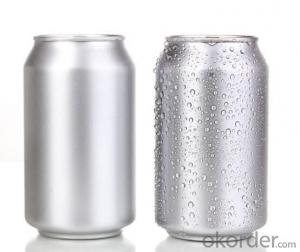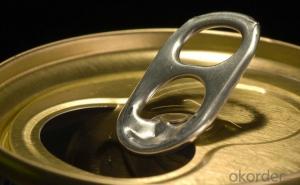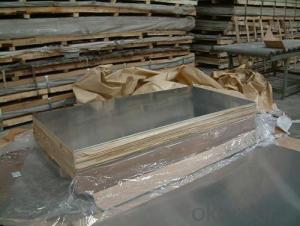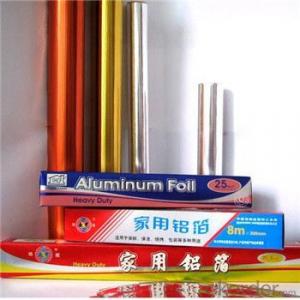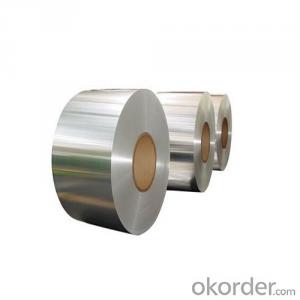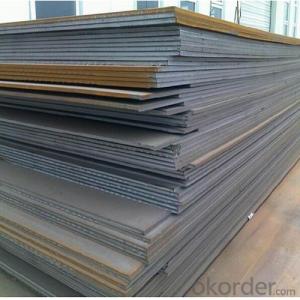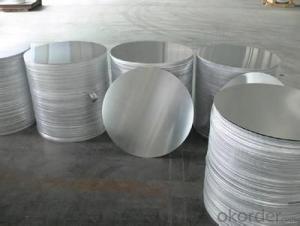China Lightweight Aluminum Sheets - 8000 Series Aluminum Can Stock for Food Packing
- Loading Port:
- Shanghai
- Payment Terms:
- TT OR LC
- Min Order Qty:
- 3 m.t.
- Supply Capability:
- 500 m.t./month
OKorder Service Pledge
OKorder Financial Service
You Might Also Like
Specification
Alloy:aa3104,aa5182,aa5052
Temper:h19,h48
Thickness:0.26-0.29mm
Width:700-1800mm( body stock),60-1800mm(end&tab stock)
Paint:ppg or valspar
Lubrication:henkel
Special specification is available on customer's requirement
Aluminu Can are dived to the can body and pull top, it can pack automatically with can filler to pack carbonated beverage like coloca, persi and hot filling juice for long shelf life. Now we have sizes as below:
Slick 330ml/310ml
270ml/200ml
Slim 250ml
Stubby 250ml
Size | 62.5*37mm |
Diameter | 62.5 mm |
Material | aluminum |
Thickness | 0.25 mm |
Coating | Epoxy-phenolic lacquer |
Usage | Used for packing dried food, farm production, such as, milk powder, coffee powder, tea, seasoning, seeds, air freshener, etc. |
Printing | as per your requirement |
Main Products | 202#(d=52mm),206#(d=56mm),209#(d=62.5mm),211#(d=65.4mm),300#(d=72.9mm),307#(d=83.3mm),309#(d=90mm),401#(d= 99mm),502#(d=126.4mm),603#(d=153mm),701#(d= 177mm). |
Remarks | We can make new mould as per your requirement. |
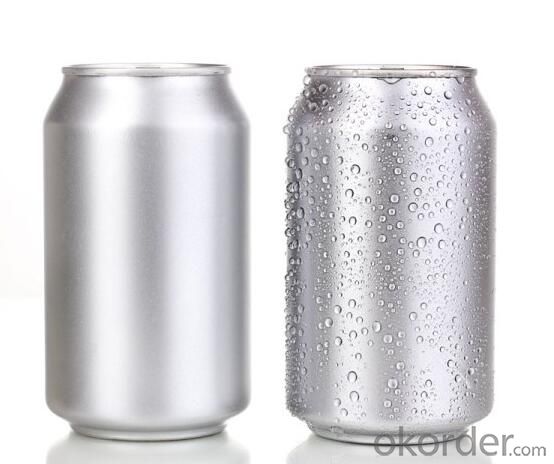
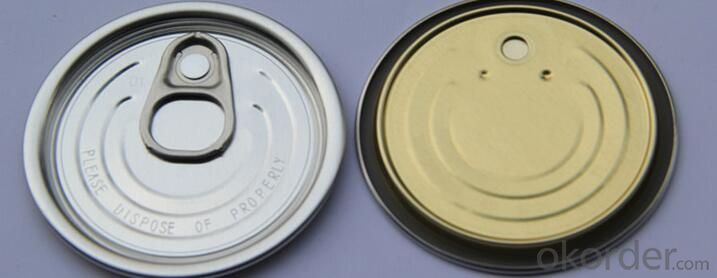
- Q: What are the surface treatment requirements for aluminum sheets in the food industry?
- In the food industry, aluminum sheets are commonly used due to their excellent corrosion resistance and lightweight properties. However, certain surface treatment requirements need to be met to ensure the safety and quality of the food products. Firstly, aluminum sheets used in the food industry should undergo a cleaning process to remove any impurities or contaminants. This can be achieved through various methods such as chemical cleaning, alkaline cleaning, or mechanical cleaning. The purpose is to eliminate any potential sources of contamination that could affect the food's taste, odor, or safety. Furthermore, the surface of the aluminum sheets should be properly finished to prevent any interactions between the metal and the food. Anodizing is a popular surface treatment method, which creates a protective oxide layer on the aluminum surface. This layer not only enhances corrosion resistance but also provides a barrier against any potential migration of aluminum ions into the food. Additionally, it is crucial to ensure that the surface treatment materials used are food-grade and compliant with relevant regulations. The food industry has specific guidelines and standards in place to ensure the safety and suitability of materials that come into contact with food. Therefore, the surface treatment process should adhere to these standards to prevent any health hazards or contamination risks. Regular inspection and maintenance of the surface treatment are also necessary to guarantee its effectiveness over time. This includes monitoring the integrity of the protective layer, identifying any signs of wear or damage, and taking appropriate actions to address them promptly. In summary, the surface treatment requirements for aluminum sheets in the food industry include thorough cleaning, proper finishing, the use of food-grade materials, and regular maintenance. These measures are crucial to ensure the safety and quality of the food products and to comply with industry regulations and standards.
- Q: Can the aluminum sheets be used for manufacturing kitchen countertops?
- Yes, aluminum sheets can be used for manufacturing kitchen countertops. Aluminum is a versatile and durable material that is resistant to corrosion and heat. It is lightweight and easy to work with, making it suitable for creating custom countertops in various sizes and shapes. Additionally, aluminum countertops offer a modern and sleek aesthetic, and they can be easily cleaned and maintained. However, it is important to note that aluminum is a softer metal compared to other materials commonly used for countertops, such as granite or quartz. This means that aluminum countertops may be more prone to scratches and dents. Nevertheless, with proper care and maintenance, aluminum sheets can be a viable option for manufacturing kitchen countertops.
- Q: Can aluminum plate resist acid and alkali?
- Acid base corrosion aluminum alloy, corrosion resistance, but nothing is absolute, even if the steel plate in the long-term corrosion of acid and alkali will also have problems
- Q: Can aluminum sheets be used for curtain walls?
- Yes, aluminum sheets can be used for curtain walls. Aluminum is a popular choice for curtain wall systems due to its lightweight, durability, and flexibility in design. It offers excellent structural integrity, weather resistance, and thermal performance, making it suitable for creating modern and aesthetically appealing curtain wall facades.
- Q: How does the thickness tolerance of aluminum sheet affect its usability?
- The thickness tolerance of aluminum sheet plays a significant role in determining its usability. The thickness tolerance refers to the acceptable deviation from the specified thickness of the sheet. It is typically expressed as a range or a plus/minus value. A tighter thickness tolerance ensures that the aluminum sheet meets the desired specifications consistently. This is crucial for applications where precise dimensions are required, such as in aerospace, automotive, and construction industries. In these applications, even a slight deviation in thickness can negatively impact the performance and functionality of the product. For instance, in aircraft manufacturing, the thickness tolerance of aluminum sheets used for structural components is highly critical. A thin sheet might compromise the structural integrity, while a thicker sheet could lead to excess weight, affecting fuel efficiency. Similarly, in the automotive industry, precise thickness tolerance is essential for ensuring compatibility and fitment of various components. On the other hand, a looser thickness tolerance can be acceptable for applications where precise dimensions are not as critical. For example, in general fabrication, signage, or decorative purposes, a wider thickness tolerance may not significantly affect the usability or appearance of the aluminum sheet. Additionally, the cost of manufacturing aluminum sheets with tighter thickness tolerances is typically higher due to increased precision and quality control measures. Therefore, the required level of tolerance should be balanced with the intended use and cost considerations. In conclusion, the thickness tolerance of aluminum sheet directly affects its usability, particularly in industries requiring precise dimensions. It is essential to select the appropriate tolerance level to ensure the sheet meets the required specifications, maintaining the desired performance and functionality of the final product.
- Q: Are aluminum sheets suitable for food contact applications?
- Yes, aluminum sheets are suitable for food contact applications. Aluminum is a widely used material in the food industry due to its various beneficial properties. It is non-toxic, non-reactive, and corrosion-resistant, making it safe to use with food. Aluminum sheets can be easily formed into different shapes and sizes, making them suitable for a wide range of food packaging and cooking applications. Additionally, aluminum has excellent thermal conductivity, which allows for efficient heat transfer during cooking or baking. It is also impermeable to light, moisture, and oxygen, providing a protective barrier to maintain the freshness and quality of food. Overall, aluminum sheets are a popular choice for food contact applications due to their safety, versatility, and durability.
- Q: What are the semi hard ones? What are the alloys? What are the anti rust ones, such as 3003505210606061, 7075?
- According to the content of alloy elements, aluminum plate can be divided into 8 series, namely 1***, 2***, 3***, 4***.5***.6***.7***.8***It can be divided into cold rolling and hot rolling according to different processing technologyAccording to the thickness difference can be divided into thin plate and medium plate,.GB/T3880-2006 standard in the thickness of 0.2 mm, called aluminum foilMore commonly used brands:Pure aluminum foil strip plate. 1060.. tensile plate, tube. Extrusion tube. Type. Great. Cold processing bar mainly for corrosion resistance in forming of high places, but not of high strength components, such as chemical equipment, marine equipment, railway tanker, conductive materials, instruments and meters the electrode material, and so on.
- Q: How do you protect aluminum sheets from scratches?
- To protect aluminum sheets from scratches, you can apply a protective coating such as a clear lacquer or a durable paint finish. Additionally, using protective films or wraps can also provide a temporary safeguard against scratches during transportation or handling.
- Q: What are the different alloys used in aluminum sheets?
- Aluminum sheets utilize a variety of alloys, each possessing its own distinct properties and characteristics. Some commonly employed alloys include: 1. Alloy 1100: Renowned for its exceptional corrosion resistance and superior electrical conductivity, this alloy finds extensive utilization in applications necessitating high formability and weldability. Examples include food packaging and electrical conductors. 2. Alloy 3003: Esteemed for its formidable formability, moderate strength, and outstanding corrosion resistance, this alloy enjoys widespread application in cooking utensils, chemical equipment, and general sheet metal work. 3. Alloy 5052: Recognized for its robust strength and commendable corrosion resistance, this alloy frequently finds application in marine settings, as well as aircraft fuel tanks and automotive components. 4. Alloy 6061: One of the most versatile and frequently employed aluminum alloys, this variant boasts excellent corrosion resistance, satisfactory weldability, and moderate strength. It is commonly utilized in structural components like frames and railings, as well as automotive and aerospace applications. 5. Alloy 7075: Distinguished by its impressive strength-to-weight ratio and exceptional fatigue resistance, this alloy is often chosen for applications necessitating formidable strength, such as aircraft and aerospace components, as well as high-performance sporting goods. These examples merely scratch the surface of the numerous alloys employed in aluminum sheets. The selection of a particular alloy hinges on the specific requirements of the application, encompassing factors such as strength, corrosion resistance, formability, and weldability.
- Q: Can aluminum sheet be used for cookware?
- Indeed, cookware can indeed employ aluminum sheets. Aluminum, being renowned for its superb heat conductivity, facilitates even heat dispersion and rapid heating. It possesses the attributes of being lightweight, long-lasting, and impervious to rust and corrosion. Moreover, aluminum cookware is reasonably priced and comparatively effortless to maintain. Nevertheless, pure aluminum proves to be a malleable metal, thus necessitating its amalgamation with other substances such as stainless steel or nonstick coatings to fortify its endurance and nonstick qualities.
Send your message to us
China Lightweight Aluminum Sheets - 8000 Series Aluminum Can Stock for Food Packing
- Loading Port:
- Shanghai
- Payment Terms:
- TT OR LC
- Min Order Qty:
- 3 m.t.
- Supply Capability:
- 500 m.t./month
OKorder Service Pledge
OKorder Financial Service
Similar products
Hot products
Hot Searches
Related keywords
